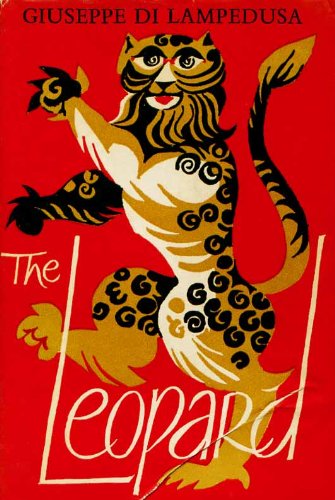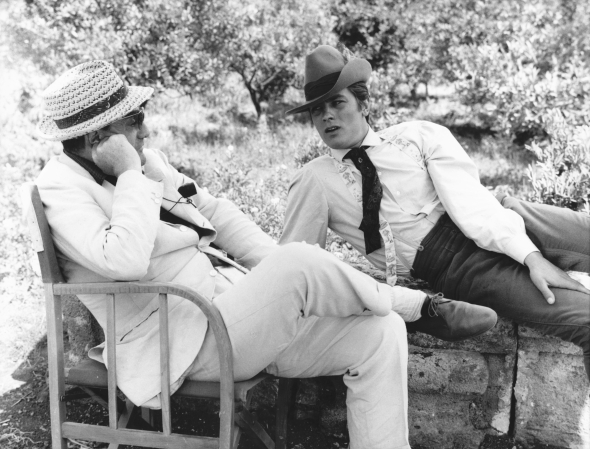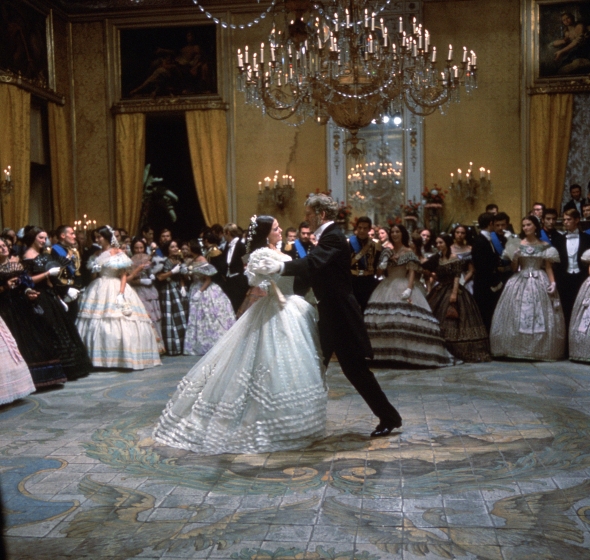It took Sicilian aristocrat Giuseppe Tomasi di Lampedusa, melancholy last scion of a never very reproductive family, a lifetime to get round to writing one of the 20th century’s greatest novels. Publication of The Leopard (Il Gattopardo), based on the life of the author's great grandfather and the changes of the risorgimento, only took place over a year after Lampedusa’s death in July 1957. Events then moved very fast. By March 1959 the book had gone through 52 editions. French and British translations won a warmer critical press than in Italy, but it was there that Luchino Visconti made his celebrated film version and in Rome that the movie had its premiere in March 1963. Two months later, it won the Palme d’Or at Cannes; the rest is history.
In fact everything is history, its causes and effects, in the worlds of novel and film. The complex motives of both writer and filmmaker were often misunderstood. Visconti seemed to have taken what many thought was a primrose path from the neo-realist stunners of the 1940s, like the tale of desperate Sicilian fisherman La terra trema (The Earth Trembles), to the balls and banquets of The Leopard. But his old Marxist critique remains, not least in the way he chooses to begin with a soldier dead under a tree and to end, as the novel does not, with the execution of proletarian unfortunates.
 Lampedusa’s, inevitably, is the more richly textured vision. He had the novelistic genius to see more than one side of an argument in characters as diverse as the disenchanted, ageing Prince Fabrizio di Salina who remains so sceptical about Garibaldi’s new regime in the 1860s, his freedom-fighting but eventually wealth-ensnared nephew Tancredi and the family priest who pays a visit to his village and gives us another perspective.
Lampedusa’s, inevitably, is the more richly textured vision. He had the novelistic genius to see more than one side of an argument in characters as diverse as the disenchanted, ageing Prince Fabrizio di Salina who remains so sceptical about Garibaldi’s new regime in the 1860s, his freedom-fighting but eventually wealth-ensnared nephew Tancredi and the family priest who pays a visit to his village and gives us another perspective.
The debates in which we learn the deepest views of the Prince – part leonine embodiment of the novelist’s great grandfather Giulio Tomasi, part portrait of the artist as disillusioned sage – are courageously reproduced in as much fullness of detail as Visconti’s screenwriter, Suso Ceccho D'Amico, dares, chiefly in the central confrontation with Piedmontese Secretary to the Prefecture Chevalley di Monterzuolo. Chevalley wants Don Fabrizio to take up a place on the Senate. The Prince’s reasons for refusal form the heart of the novel, or at least its attitude to Sicilian life. Here’s a snippet put up on YouTube by an Italian who, I suspect, shares the novel’s maxim – twice quoted in the film – that "everything must change so that everything can stay the same".
I translate, using the classic and so far unchallenged Archibald Colquhoun version: “Sleep, my dear Chevalley, sleep, that is what Sicilians want, and they will always hate anyone who tries to wake them, even in order to bring them the most wonderful of gifts: I must say, between ourselves, that I have strong doubts whether the new kingdom will have many gifts for us in its luggage. All Sicilian self-expression, even the most violent, is really wish-fulfilment.”
 The clip highlights the gain and the drawback of casting Burt Lancaster, a backers’ choice foisted on Visconti – he’d wanted Russian actor Nikolai Cherkassov – which he came to welcome. Lancaster is superb at catching the Prince's melancholy, the terminal world-weariness which later extends to his realisation that he loves the parvenue girl betrothed to his nephew. He looks every inch the big man described in the novel – but he doesn’t sound it for a moment, since the Italian dubbing plumps for a higher-pitched speaker (an English-language version exists, which I’m waiting on the American company Criterion to see and hear, using Lancaster’s own voice).
The clip highlights the gain and the drawback of casting Burt Lancaster, a backers’ choice foisted on Visconti – he’d wanted Russian actor Nikolai Cherkassov – which he came to welcome. Lancaster is superb at catching the Prince's melancholy, the terminal world-weariness which later extends to his realisation that he loves the parvenue girl betrothed to his nephew. He looks every inch the big man described in the novel – but he doesn’t sound it for a moment, since the Italian dubbing plumps for a higher-pitched speaker (an English-language version exists, which I’m waiting on the American company Criterion to see and hear, using Lancaster’s own voice).
Not that the then-ubiquitous Italian habit of post-synching studio voices serves the Italians in the film any better. There are unbearable hysterics from the long-suffering, neurotic Princess Maria Stella (Rina Morelli) and a scene in which gorgeous but inappropriately self-conscious and moueing Claudia Cardinale, playing the local profiteer Don Calogero’s daughter Angelica, shrieks her head off. The romance with Tancredi – the knowingly gorgeous Alain Delon (pictured above with Visconti on the set) - in real life would have been broken off on the spot.
 But no, they go beautifully through with this fatal alliance, and the climactic ball (pictured right) threads interminable dances – too many the same in Nino Rota’s otherwise apt score – with the love-triangle between uncle, nephew and sex-kitten.
But no, they go beautifully through with this fatal alliance, and the climactic ball (pictured right) threads interminable dances – too many the same in Nino Rota’s otherwise apt score – with the love-triangle between uncle, nephew and sex-kitten.
I’m indebted to a Canadian friend who recalls the anecdotes of Alberto Testa, a well-known Italian dancer and choreographer: "at an Easter luncheon he described, danced and attempted to teach us the dances from that ball scene. He adored Burt Lancaster and referred to him as a 'natural dancer' - you showed him a step once and he was perfect. But Claudia Cardinale - 'boh, she was a stick!'. And he did a wicked imitation of her attempts. Finally in exasperation he declared that the only way it would work was for her to stand still and move things around her."
Period detail is rich, though inevitably not shot through with the deeper significance of Lampedusa’s aching love for centuries of beautiful arts and crafts. The BFI's 2010 restoration brings out the colours with peculiar richness (it sometimes feels as if we’re viewing through Polaroid sunglasses). And there’s the inestimable advantage of the Sicilian landscapes in all their harsh, glaring summer terribilità. Have patience, don’t be too hard on the film for what it doesn’t achieve that the book does, and accept it not as a masterpiece (it isn’t, the novel certainly is) but as a lavish document of two eras, the 1860s and the early 1960s.















Add comment